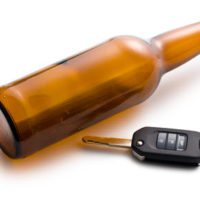Admissible Evidence for DUI Charges in Virginia

In the Commonwealth of Virginia, it is illegal to drive under the influence (DUI) of alcohol, drugs, or a combination of both. If a person is impaired by any of these substances — and, thus, incapable of driving safely — they are guilty of DUI under Virginia law. Moreover, a DUI conviction will result in criminal penalties, including the potential for jail time and expensive fines.
Before the state can apply any criminal penalties, however, the alleged offender must be convicted for a DUI offense. This means that a court or a jury must consider evidence of the offender’s impairment before determining guilt or innocence.
What Evidence is Admissible in a DUI Case?
Under Code of Virginia Section 18.2-268.10, a court or a jury must consider all relevant evidence in determining the alleged offender’s guilt or innocence.
In most DUI cases, law enforcement is able to obtain a chemical test of the driver’s breath or blood. If the results indicate the presence of alcohol, drugs, or a combination of both, then the test is admissible to show that the driver was impaired by alcohol or drugs.
But the results of a breath or blood test do not preclude the introduction of other relevant evidence. If other evidence is introduced that relates to the driver’s impairment, or lack thereof, then the court or jury must consider that evidence.
Overall, a court or a jury must consider all relevant evidence before determining whether a person is guilty or innocent of DUI charges. Furthermore, a DUI conviction depends upon the prosecution’s ability to prove impairment from alcohol or drugs beyond a reasonable doubt.
Does Refusing a Test Qualify as Evidence of DUI?
When law enforcement officers execute a traffic stop and suspect the presence of alcohol or drugs, they must verify impairment or intoxication. To conduct this verification, the officers then ask for permission to test the driver’s blood or breath.
Drivers are not actually required to submit to a DUI test of their breath or blood under Virginia state law. Furthermore, if the driver refuses to submit to the test, it can be difficult for the prosecution to prove impairment from alcohol or drugs. And the court or the jury cannot consider a test refusal as evidence of impaired or intoxicated driving.
At this juncture, it is vital to note that a DUI test refusal carries its own penalties under Virginia state law. Specifically, such a test refusal results in driver’s license suspension or revocation for a certain period of time. Repeat offenses extend the mandatory driver’s license suspension or revocation.
Let Us Help You Today
If you need legal help with criminal charges for DUI in Virginia, it is best to speak with an accomplished criminal defense attorney. The attorneys at Simms Showers LLP, servicing Leesburg, Winchester, Fairfax, and Manassas, feature proven experience in the field of criminal defense, including various types of DUI charges. If you need criminal defense, contact us today for a free initial consultation.
